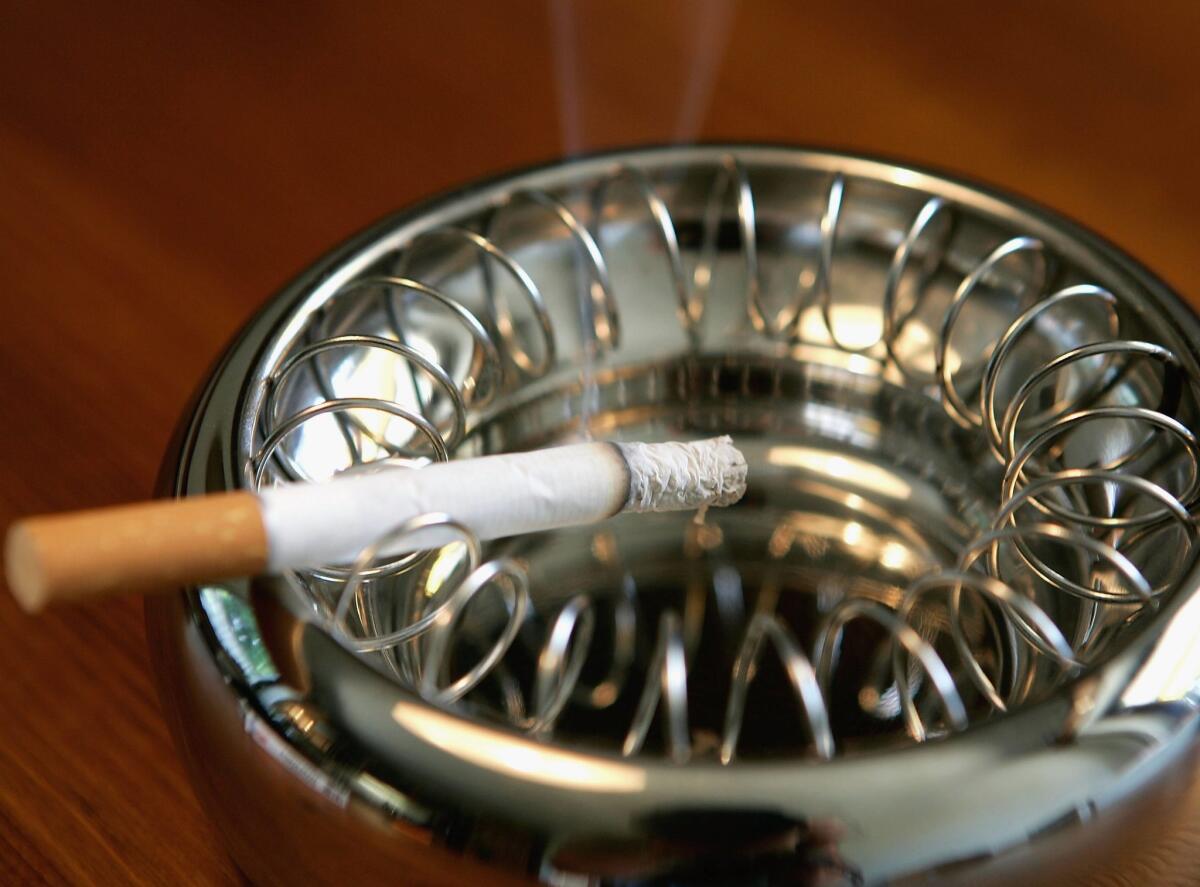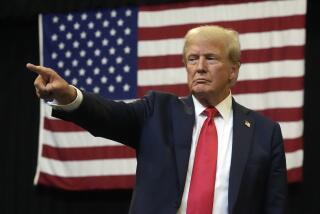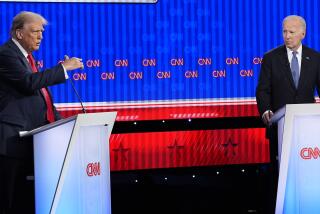Why opponents of increasing the tobacco tax aren’t talking about tobacco

- Share via
Reporting from Sacramento — In November, Californians will vote on raising the cigarette tax for the third time in a decade. And like previous campaigns, the tobacco industry isn’t spending much time trying to convince voters that, in general, increasing tobacco taxes is a bad thing to do.
Instead, in television advertisements in heavy rotation across the state, opponents of the initiative to raise the cigarette tax by $2 a pack are arguing that voters should be wary of the gains by doctor groups and insurance companies that are backing the measure.
“Follow the money,” one ad says.
The tobacco industry’s strategy isn’t new, but it has been successful. Despite longstanding support among Californians to hike taxes on cigarettes, ballot measures to raise them in 2006 and 2012 fell short after tobacco companies dumped tens of millions of dollars into campaigns to seed doubt among voters about the initiatives’ details, and dwarf supporters’ spending.
Still, in each campaign, proponents have left themselves open to those attacks because they’ve needed to cobble together backing from interest groups to finance their measures. And in turn, those interest groups have stood to benefit from how the tobacco tax money would be spent.
Proposition 56 is no different. Tobacco companies have contributed more than $56 million so far to fight the measure, compared with supporters’ $23 million. Most of the money from the proposition would go toward boosting Medi-Cal, the state’s healthcare program for low-income residents. But the tobacco companies are contending that spending is simply a payoff to the doctor groups and insurance companies that are among the measure’s biggest financial backers.
“It’s important to have a conversation about what a measure will do and the impact that will have on voters and taxpayers,” said Beth Miller, spokeswoman for No on 56. “It’s an old adage, but it’s a true one, that the devil is in the details.”
Roughly 12% of California adults smoked in 2014, according to state figures, the second lowest rate in the country. That’s true even though the tobacco industry’s success in California has kept the state’s cigarette taxes comparatively modest. California’s tax of 87 cents a pack ranks 37th in the country, according to the Campaign for Tobacco-Free Kids, and hasn’t been raised in almost 20 years.
The low tax rate belies the popularity of the idea to increase it. Wide support for boosting the tobacco tax has held steady for a decade. “Most people don’t smoke in California and the tax increase doesn’t impact them directly,” said Mark Baldassare, the president and CEO of the Public Policy Institute of California, which tracks public opinion on tobacco. “Most people also think people shouldn’t smoke.”
But that support has eroded when tax increases have appeared on the ballot, and the tobacco industry hammers away with advertisements.
In 2006, backers tried to raise the tax by $2.60 a pack – which would have been the highest in the country at the time. The tobacco industry spent $66 million against it – nearly four times the supporters’ campaign – and sharply criticized that the largest fraction of the new money would have gone toward emergency services for hospitals and doctors, who were financing the campaign. The measure lost by nearly 2 percentage points.
Six years later, supporters tried a $1 a pack campaign. Most of that money would have funded medical research, and tobacco companies attacked that initiative for creating a new bureaucracy to dole out the money and because it wouldn’t have helped the state’s severe financial woes at the time. The tobacco industry spent $48 million to kill the measure, five times the supporters’ campaign. That measure failed with 50.2% voting against it.
“The campaign that the tobacco companies are running against (Prop.) 56 here in California is the standard ‘No’ campaign that they’ve run for almost 30 years,” said Stanton A. Glantz, a professor of medicine at UC San Francisco and supporter of Proposition 56 who has researched tobacco tax efforts at the national level.
Polls last month from USC Dornsife/Los Angeles Times and PPIC had the measure with roughly 60% support among voters, though a Field Poll showed the measure with 53% in favor.
If Proposition 56 passes, more than half of the revenue the tax hike would raise next year – at least $1.27 billion – would go to Medi-Cal, with a large proportion of the remainder backfilling existing state and local programs, including the state’s existing anti-tobacco efforts. That revenue replacement is needed, supporters said, because fewer people would buy cigarettes with higher taxes.
Ironically, the tobacco industry’s advertisements also criticize the initiative, saying that only 13% of the money from the tax increase would go toward new anti-smoking programs, something the No on 56 campaign has labeled as “deceptive.”
Backers of Proposition 56 said they’ve learned from previous failures.
The coalition of supporters for the effort is broader, with more business and labor groups than before. And it makes sense for most of the money to go toward healthcare for low-income residents because of the need within that population, said Jim Knox, vice president of California government relations at the American Cancer Society, who has been involved in all three campaigns in the past decade.
Still, Knox said, he’s worried that the tobacco industry’s spending might overwhelm the campaign like it has before.
“The lesson is we need money to beat the tobacco companies,” he said. “If they have a 4 to 1 advantage on us, we’re going to lose.”
Times staff writer Sophia Bollag contributed to this story.
Follow me at @dillonliam on Twitter
ALSO
Tobacco tax initiative proposed for California
Supporters admit defeat on Prop. 29 tobacco tax
Tobacco Firms Light Up Airwaves
More to Read
Get the L.A. Times Politics newsletter
Deeply reported insights into legislation, politics and policy from Sacramento, Washington and beyond. In your inbox three times per week.
You may occasionally receive promotional content from the Los Angeles Times.







